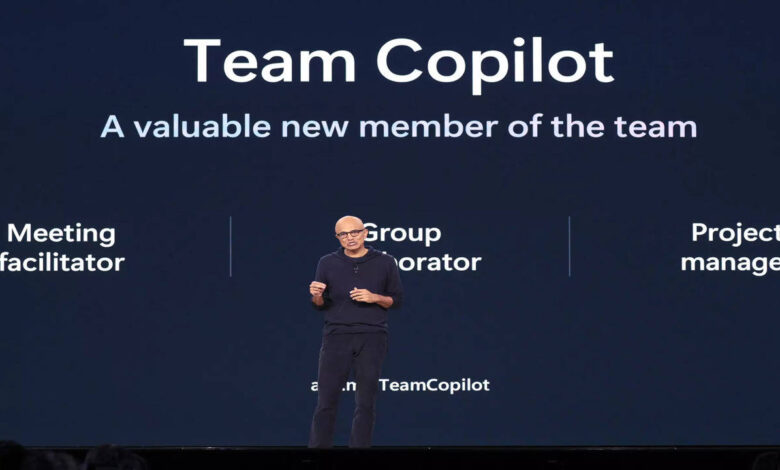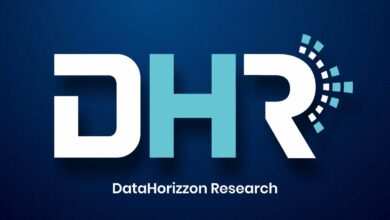AI
Microsoft CEO Satya Nadella: One of the most unfortunate names is ‘artificial intelligence’, I wish we …

Just a week after OpenAI showcased a playful AI assistant with emotional intelligence, Microsoft CEO Satya Nadella offered a contrasting view on human-computer interaction in an interview with Bloomberg Television on Monday.
“I don’t like anthropomorphizing AI,” Nadella stated, referring to the practice of attributing human qualities to machines. “I sort of believe it’s a tool.” His comments highlight a growing debate within the tech industry. As AI capabilities soar, the question of how much to humanize these tools becomes increasingly relevant.
Nadella even expressed his dislike for the term “artificial intelligence” itself, coined in the 1950s. “I think one of the most unfortunate names is ‘artificial intelligence’ — I wish we had called it ‘different intelligence,'” he said. “Because I have my intelligence. I don’t need any artificial intelligence.”
The Big difference with ChatGPT maker OpenAI
Last week, a Google executive spoke to Bloomberg about their focus on building “super helpful and super useful” AI, even though creating tools that “show emotion” is technically possible.
OpenAI, however, has taken a distinctly different path. Their recent demo featured a voice assistant capable of understanding and expressing emotions. The presentation included moments where the AI seemed to playfully banter with the presenter, sparking comparisons to the movie “Her” on social media. The resemblance was further amplified by a voice option that some users felt mimicked Scarlett Johansson, the film’s star.
Johansson, in a statement to NPR, revealed that OpenAI CEO Sam Altman had approached her about voicing an audio chat feature. She claimed Altman presented it as an opportunity to “help consumers feel comfortable with the seismic shift concerning humans and AI.” Johansson declined and stated she’s had to involve lawyers due to OpenAI’s choice to proceed with a similar-sounding voice. (OpenAI has since replaced the voice.)
Tech companies have a long history of assigning human characteristics to AI programs, often with feminine names and traits, presumably to make users feel more at ease with the technology. Microsoft itself hasn’t been exempt from this practice. Over the years, they’ve released various conversational AI programs like Tay and Cortana, named after the female AI assistant in the Halo video game franchise.
Nadella acknowledges the natural tendency to describe AI in human terms. People seek ways to understand the complex algorithms behind the software, using relatable terms like “learning” to explain its function. This tendency is likely to strengthen as companies release more advanced AI capable of real-time conversation.
However, Nadella emphasized the importance of user awareness. The capabilities displayed by AI software are not equivalent to human intelligence, he stressed. “It has got intelligence, if you want to give it that moniker, but it’s not the same intelligence that I have,” he clarified.
“I don’t like anthropomorphizing AI,” Nadella stated, referring to the practice of attributing human qualities to machines. “I sort of believe it’s a tool.” His comments highlight a growing debate within the tech industry. As AI capabilities soar, the question of how much to humanize these tools becomes increasingly relevant.
Nadella even expressed his dislike for the term “artificial intelligence” itself, coined in the 1950s. “I think one of the most unfortunate names is ‘artificial intelligence’ — I wish we had called it ‘different intelligence,'” he said. “Because I have my intelligence. I don’t need any artificial intelligence.”
The Big difference with ChatGPT maker OpenAI
Last week, a Google executive spoke to Bloomberg about their focus on building “super helpful and super useful” AI, even though creating tools that “show emotion” is technically possible.
OpenAI, however, has taken a distinctly different path. Their recent demo featured a voice assistant capable of understanding and expressing emotions. The presentation included moments where the AI seemed to playfully banter with the presenter, sparking comparisons to the movie “Her” on social media. The resemblance was further amplified by a voice option that some users felt mimicked Scarlett Johansson, the film’s star.
Johansson, in a statement to NPR, revealed that OpenAI CEO Sam Altman had approached her about voicing an audio chat feature. She claimed Altman presented it as an opportunity to “help consumers feel comfortable with the seismic shift concerning humans and AI.” Johansson declined and stated she’s had to involve lawyers due to OpenAI’s choice to proceed with a similar-sounding voice. (OpenAI has since replaced the voice.)
Tech companies have a long history of assigning human characteristics to AI programs, often with feminine names and traits, presumably to make users feel more at ease with the technology. Microsoft itself hasn’t been exempt from this practice. Over the years, they’ve released various conversational AI programs like Tay and Cortana, named after the female AI assistant in the Halo video game franchise.
Nadella acknowledges the natural tendency to describe AI in human terms. People seek ways to understand the complex algorithms behind the software, using relatable terms like “learning” to explain its function. This tendency is likely to strengthen as companies release more advanced AI capable of real-time conversation.
However, Nadella emphasized the importance of user awareness. The capabilities displayed by AI software are not equivalent to human intelligence, he stressed. “It has got intelligence, if you want to give it that moniker, but it’s not the same intelligence that I have,” he clarified.



